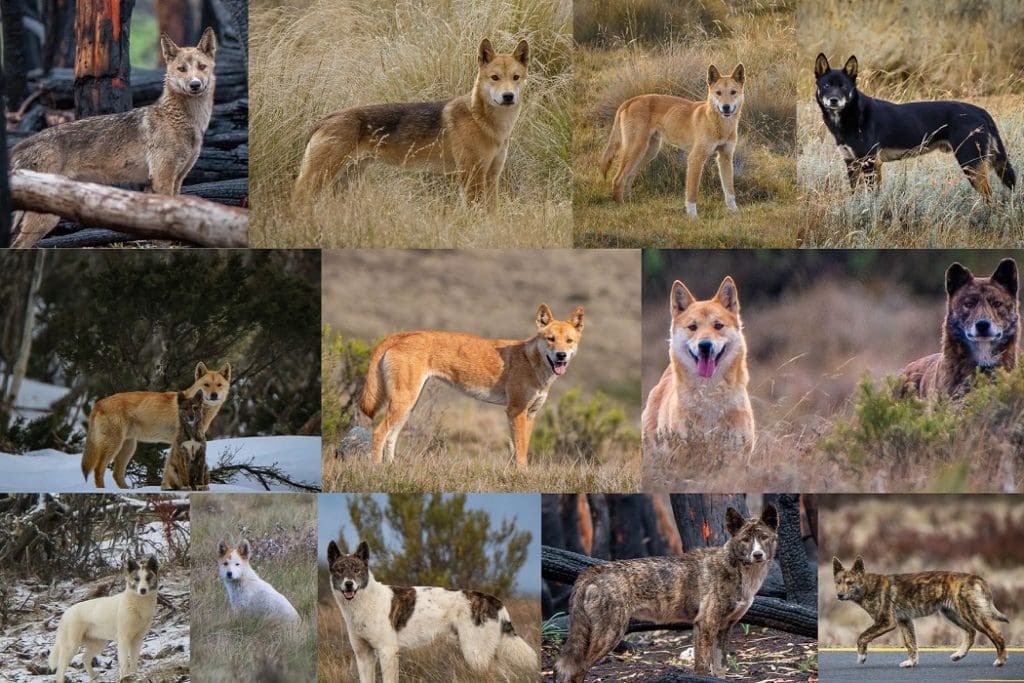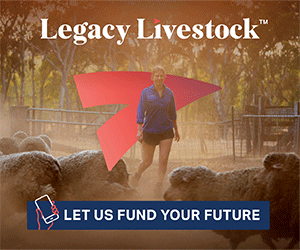
Dingoes come in all colours. Image – UNSW.
VICTORIA’S Wild Dog Management Program will be extended for 12 months to allow the government to assess the conservation status, population and distribution of dingoes in the state.
A Victorian Government spokesperson said that following emerging research, the current unprotection order will be extended for 12 months.
“We will continue to work with Traditional Owners, farmers and private landholders to appropriately balance the protection of livestock and dingo conservation,” the spokesperson said.
Victoria’s Wildlife Act (1975) Order In Council ‘unprotects’ the dingo on private land, and on public land within 3km of the private land boundaries to public lands, enabling baiting and trapping.
The program extension has been welcomed by the Victorian Farmers Federation, with Livestock Group vice-president and Tallangatta farmer Peter Star saying the move was one of common sense.
 “It just made sense to extend the highly successful Wild Dog Management Plan.”
“It just made sense to extend the highly successful Wild Dog Management Plan.”
“The Wild Dog Management Plan is a nation leading initiative that protects both farmers and our native wildlife,” he said.
“The VFF is looking forward to continuing engaging with the Government on the many benefits that the Wild Dog management program delivers and will advocate for programs strengthening and extension over the next year,” Mr Star said.
A suggestion by Australia’s national wild dog management coordinator Greg Mifsud that recent research and control measures fostered healthy populations on public land and indicated the dingo no longer qualifies as a threatened species in Victoria has been contested by researcher Dr Kylie Cairns. And the government is considering recommendations in the Parliamentary Report into Ecosystem Decline in Victoria that include removing the Order In Council with its three-kilometre livestock protection buffer, reintroducing dingoes in some parks and phasing out 1080 baiting.
Dingoes in western Victoria need urgent protection – researcher
UNSW Australia research fellow – canid and wildlife genetics, Dr Kylie Cairns, said she is disappointed by the Victorian Government’s decision “to extend the ‘wild dog’ management program for another 12 months given the strong scientific evidence that the animals being killed are dingoes not ‘wild dogs’.”
“This policy means dingoes remain as the only native animal that is allowed to be killed in national parks.
“The continuation of aerial baiting and the “wild dog” bounty program in Victoria is not evidence-based policy in-line with the aim of conserving dingoes,” she said.
“Whilst it is a step in the right direction for the Victorian Government to commit to undertake further assessment of the conservation status of dingoes, there is already sufficient scientific evidence that wilkerr (dingoes) in western Victoria need urgent protection given their small population size and extremely low levels of genetic diversity.
“It is important that any assessments of the conservation status of dingoes in Victoria considers the species current versus historical distribution and patterns of genetic diversity,” Dr Cairns said.
“Whilst dingoes may be persisting in western and eastern Victoria they are locally extinct in central Victoria.
“The finding of low genetic diversity in dingoes across Australia highlights the vulnerability of the species to ongoing lethal control and habitat fragmentation.”
Long-term future of program is in doubt – VFF
The VFF said the Wild Dog Management Plan has been a successful wildlife management program since it was launched in 2012, helping to deliver conservation and pest management objectives, including a 75 percent reduction in livestock loss and attacks on properties next to public lands in eastern and south-west Victoria.
However, the VFF said the long-term future of the program remains in doubt. Mr Star said the VFF’s attention would now turn to ensuring the program is extended past 2024.
“Although it’s disappointing that the program has only been extended for a year, we welcome the opportunity to engage with the Government to ensure the program is extended.
“Claims that the program threatens Victoria’s dingo population are baseless and are built on a lack of rigorous scientific evidence,” he said.
“What we do know is wild dogs pose a significant threat to Victoria’s farming communities and there’s no lack of evidence of that,” Mr Star said.
The VFF said it will continue to strongly advocate for the continuation of the program in order to protect livestock producers from the effects of wild dogs and dingo-dog hybrids while also ensuring that native wildlife is protected from the ravages of wild dogs and dingo hybrids.
Further dingo assessment in coming months
The Victorian Government said further assessment of dingo conservation status, population and distribution across Victoria will be conducted in the coming months.
In Victoria, the dingo is listed as a threatened species under the Flora and Fauna Guarantee Act 1988 and is considered protected wildlife under the Wildlife Act 1975. The government said the dingo is regarded as having an important role as a top order predator in the natural environment, and as culturally important to First Nations People and as an iconic Australian species.
There is also emerging research regarding the genetic status of what were previously understood to be wild dogs or dingo-dog hybrids, the government said. The government said that over the next 12 months it will consult closely with farmers and the agricultural sector and engage with Traditional Owners to ensure that these policy settings support the ongoing protection of livestock while ensuring the conservation of the dingo and rights of Traditional Owners.
Through existing programs and regulations, the Victorian Government said it is supporting farmers to apply best practice management. The government also encouraged private land managers to use non-lethal control measures including exclusion fencing, protective on-farm animal husbandry practices and guardian animals as means of reducing the impacts of the predation of livestock at a local level.
https://www.wildlife.vic.gov.au/our-wildlife/dingoes.

Thanks for keeping us informed on this issue.